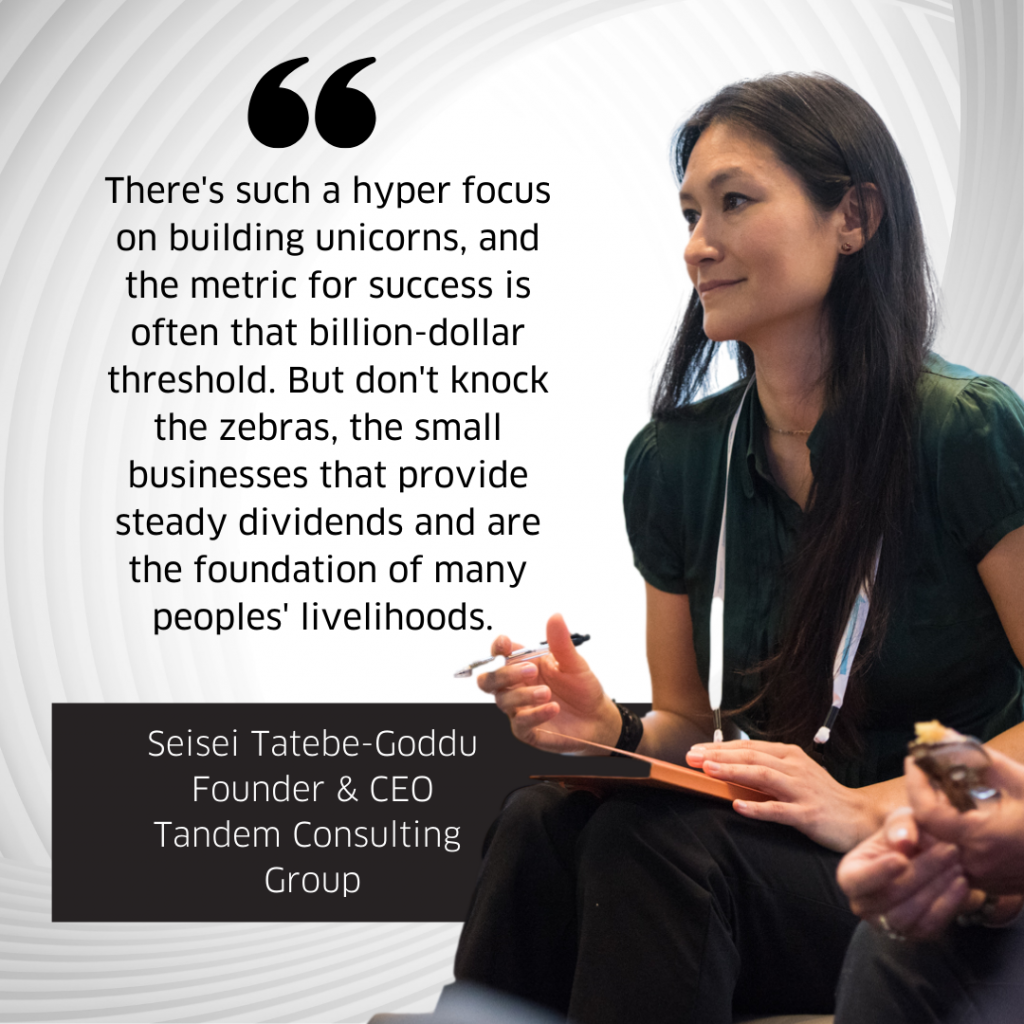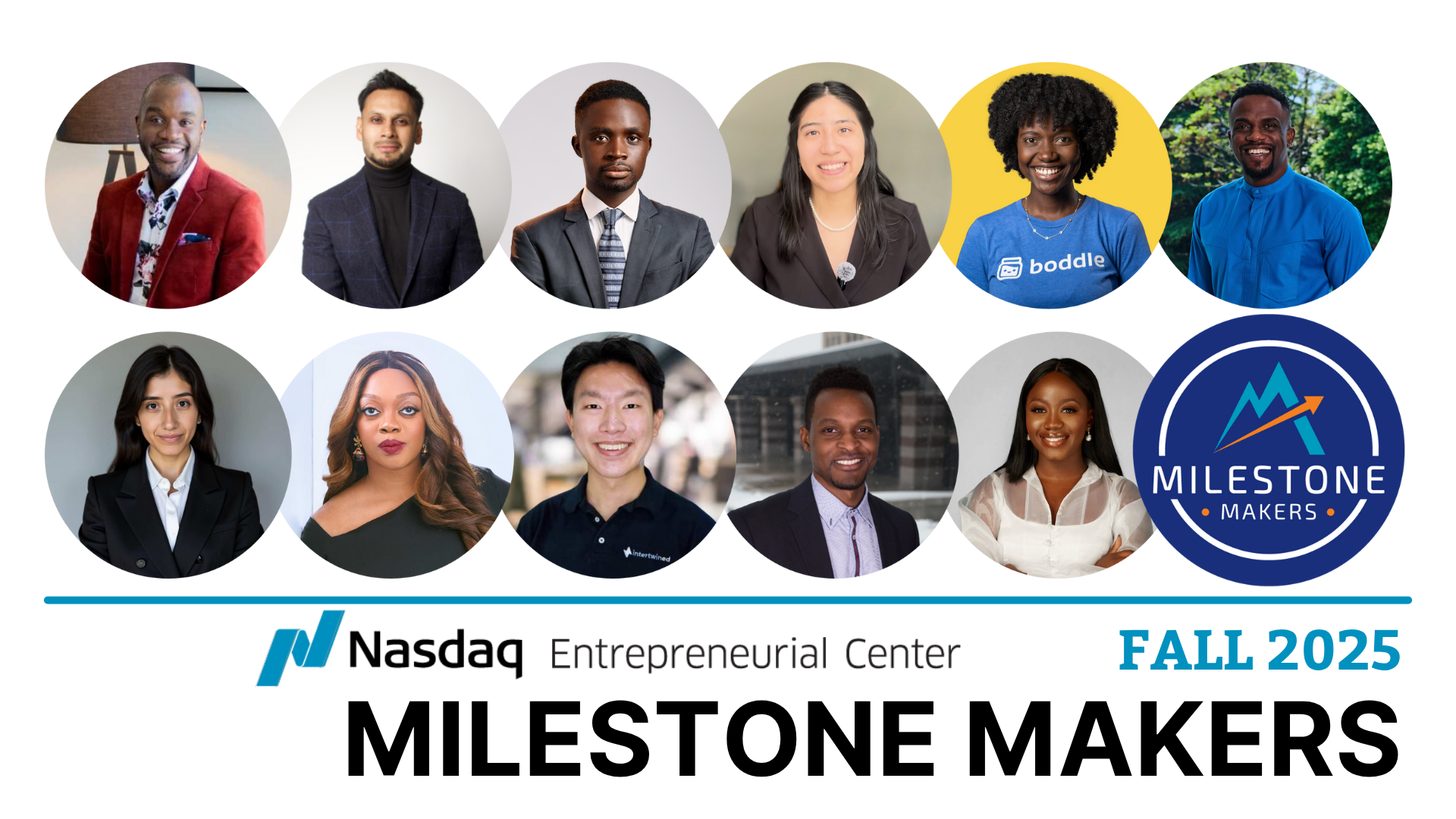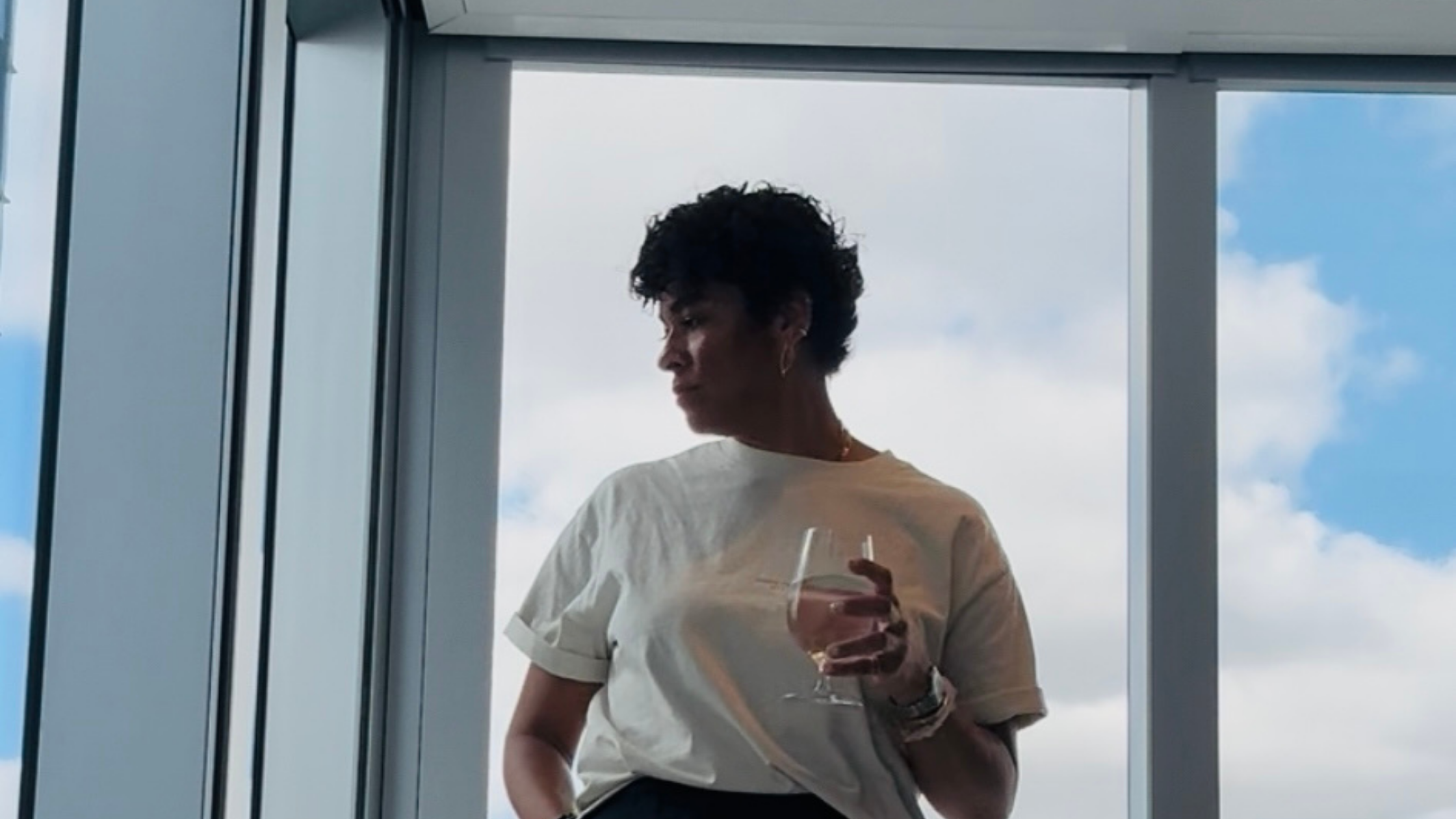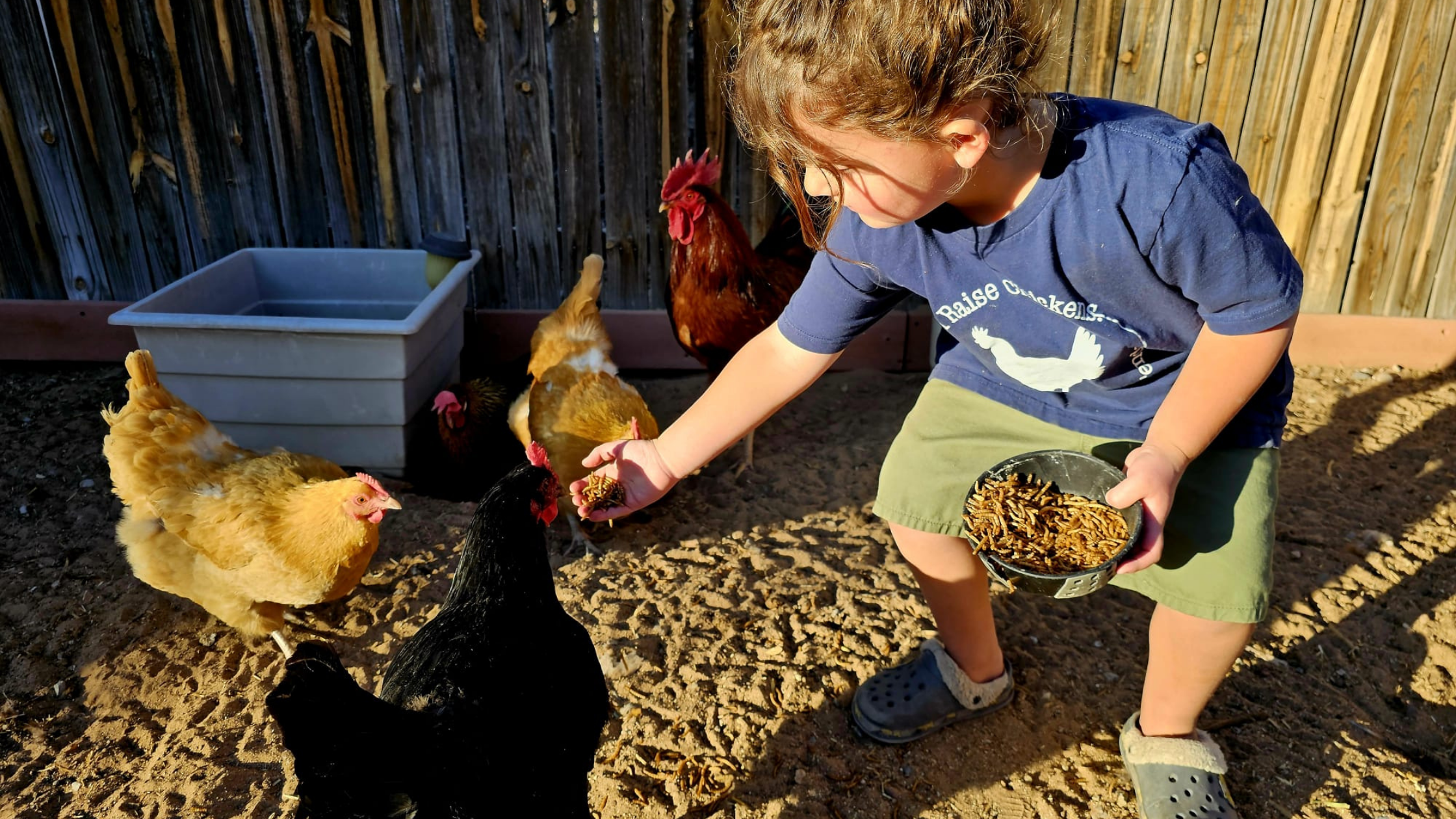Seisei Tatebe-Goddu is the CEO and founder of Tandem Consulting Group, a company that helps organizations in Africa, Europe, the Middle East, and the US do good and do it better through consulting, executive coaching, and training. In addition to Tandem, Seisei is a Venture Partner at Republic, coach at The Grand, faculty at Glasgow Caledonian New York College, and a Phillips Exeter Academy General Alumni Association Director. Prior to this role, Seisei was the first COO of Future Now/The States Project and the founding COO of Run for Something. Prior to political work, Seisei joined the B Team (a Richard Branson initiative) and co-created doosh/off. She is a McGill and Columbia grad and active with NationSwell, Dreamers & Doers, Chief, Smash Squad, and Asian Boss Ladies.
 What does “entrepreneurship” mean to you?
What does “entrepreneurship” mean to you?
Seisei Tatebe-Goddu: It is first and foremost about solving a problem. Getting an exit or becoming a unicorn has increasingly become the name of the game, but optimizing for investor profit versus finding a solution to a problem isn’t always the same thing. They don’t have to be mutually exclusive, but I find that truly being dedicated to solving a problem requires a willingness to take on more risk and push boundaries so that you stay in control of your vision, time, energy, and resources.
Tell us about your first experience with entrepreneurship.
STG: I first fell into entrepreneurship in 2008, when businesses were reeling from the Global Financial Crisis – not the best timing, one might think. But my target market was actually ripe for receiving the kind of support my consulting firm could offer. It was an immediate service market fit for my Middle East-based clients.
What is your company’s origin story? What is the biggest reason you started your business? What did those early days look like and teach you?
STG: I set up Tandem Consulting Group (Tandem) during my time in Jordan, at the tail end of a fellowship focused on tackling environmental conflict resolution. One of the companies I had previously supported sought out my help as one of a handful of people in the Middle East who could do the kind of work they needed. From there, my business grew through word of mouth, which was a real testament to the quality of my work and to the fact that the market was seriously underserved.
What do you wish you knew when you started? Is there anything you would do differently?
STG: Don’t focus too much on modeling your business after other companies, especially established entities. There is a lot of pressure to ‘be official’ and provide the illusion of incorporation, whether that’s business cards, office space, etc. These are all overhead costs that are often unnecessary in the early days. This may obviously vary depending on the nature of your business, but I would focus on letting the quality of the work or product speak for itself. The rest comes later.
What does “success” look like for you? We’d love to hear your biggest, boldest dream? What do you think will help you achieve it?
STG: I care about landing a certain caliber of clients, but I’ve actually achieved that milestone. At this point, I aspire to and place heavy emphasis on the internal health of the company and the wellbeing of my team. Yes, we want to tackle interesting problems and deliver high quality, but the early days of a start-up can be grueling and burn people out. To me, if the work isn’t meaningful and joyful, if we aren’t crossing the finish line as an uplifted and united front with people who we deeply respect, I question the value of the holistic endeavor.
Have you raised outside capital so far?
STG: I have not fundraised; I bootstrapped and raised Tandem from the ground up on my own. External fundraising doesn’t make sense for a consulting business because the returns aren’t as high as investors expect and seeking that kind of funding can put undue pressure on the company. There’s such a hyper focus on building unicorns, and the metric for success is often that billion-dollar threshold. But don’t knock the zebras, the small businesses that provide steady dividends and are the foundation of many peoples’ livelihoods. They, too, power economic growth and enable communities to grow from poverty to middle class, and hopefully, over time, to higher income levels. Capital in the current market environment is not as friendly to zebras, which is one of the inhibitors to the emergence of companies that not only prioritize profit but also seek to provide new solutions to unaddressed problems.
What is your superpower as an entrepreneur? What is your proudest and darkest moment so far? Share a key high and a key low from your journey if you can.
STG: Ego management. It’s somewhat contradictory – believing that you can set up a business that no one else has successfully conquered requires a certain level of ego – arrogance, even. Overinflated, that ego can be your downfall, given that the challenges of setting up a business can be humbling and constantly challenge your capabilities. Start-up life comes with a lot of ups and downs; when I think about what has given me a sense of pride, I wouldn’t pinpoint one singular moment. A lot of my success has come from my ability to quickly and precisely put my finger on the issue that matters most to clients, and that has earned me a certain level of credibility within the market – one that has led to marketing by word of mouth. That assurance of the quality and value I put out has carried me through many tough moments and long hours of work. Walking away from full-time focus on Tandem to tackle a master’s degree and other endeavors is actually one of my greatest regrets. I thought that I needed a more diverse skillset and a formalized education in the topics I was tackling, but learning on the job was actually where I learned the skills that made me successful.
What are your personal driving principals, your top values?
STG: There’s a framework of needs often referred to as BICEPS (belonging, improvement, choice, equality, predictability, and status). We all need these six, but we prioritize them differently. For me, it’s important that I have the freedom to shape how I’m spending my time and who I spend it with. I don’t suffer fools gladly, and I’m miserable when in positions where I have to grin and bear it. That’s followed up by equality: it’s important to me that I and my team are treating each other and are treated fairly by others.
Those top values create a lot of ripple effects because they are embedded in the decision-making for myself and the company. For example, having that much control over your own choices can produce paralysis – so knowing what you need and why becomes paramount. Prioritizing fairness means I can show up with empathy and compassion for someone else, but value myself enough to know when to walk away. I’ve learned to really pay attention to Mark Manson’s mantra: if it’s not a fuck yes, it’s a no. I’ve turned down and even fired clients because they weren’t treating my team or me well, and had zero regrets doing it. Ultimately, it all comes down to trust: do you trust yourself? Do you trust your team? Lose that trust and you end up with a fragmented or demoralized team that will struggle to push past challenges when they happen (and they do, all the time!).
What’s it like to work alone or with your partners?
STG: As an only child, I grew up fiercely independent with a preference for self-sufficiency. In group settings, it means that I tend to take on a dominant / leadership role. That said, I deeply appreciate other perspectives; when I was a teenager, I joined a choir and understood that you won’t have a performance without every voice contributing to it. So I’ve learned how to harmonize without necessarily needing to be in the de facto leadership position. It’s about working in concert to achieve one clear purpose. I find that getting clarity from the start on each person’s role and how they’re expected to contribute helps you achieve the best outcome.
Do you have a mentor? Tell us about what makes them valuable to you and your business?
STG: Absolutely – I have what I think of as my ‘personal board’ – a group of individuals with diverse backgrounds and skills that I can call upon when facing any one of the many hurdles that running a business throws at you. Very critically, these are people who will not focus solely on validating my efforts, but will also actively challenge my thinking.
What role does mentorship play in your world (as a mentor or mentee)?
STG: One of my core values is improvement and a sense of progress. You won’t fuel growth if you constantly have your perspective mirrored back or operate in an echo chamber. Receiving AND providing mentorship sets me up for constant learning. It allows people to lift each other up and, in a way, look out for each other. It contributes to the sense of wellbeing that I so highly value while also giving me access to new perspectives that help me solve thorny problems.
Many entrepreneurs continue to perfect their daily routines to support their work and greater vision; would you mind sharing your morning routine or a regular ritual that grounds your work each day?
STG: My ability to wake up every day and tackle my vision relies on a few elements: deep rest, being present, and self-affirmation. So, every morning I take Loki (my dog) for a walk – no devices allowed, just me, my dog, and the park. That 30-60 minutes is followed by feeding him, a meditation, a 2-minute plank (not as easy as it sounds), stretching, shower, and breakfast. I follow it up with a second meditation later in the afternoon. Every day. The mental and physical aspects of my routine get me ready to tackle the demands of the day and any anxiety that may come with that. I cannot emphasize enough how much that time in nature without any digital device beeping or going off every few minutes matters – that in itself allows for a natural meditative state to set in, and an expansion of my awareness of the world around me. In an ideal world, I get two hours to go through that ritual. In reality, we often run short on time. I never skip the routine altogether, so I’ve found a way to bring it down to a practical 30-40 minutes that features the most critical activities to getting my mindset in the right place.
What are you reading or have read?
STG: I like to turn to science fiction – the works of authors such as Octavia Butler, N.K. Jemisin or Liu Cixin (the Three-Body Problem). I find inspiration in seeing things through a different lens that challenges the current world and metaphysical context in which we exist. It’s horizon-expanding and sends my mind down creative avenues that fuel my problem-solving capabilities.
Where do you go for inspiration?
STG: I go out into nature. It’s restorative and grounding to be surrounded by something that is bigger than myself.
Do you have a favorite quote, mantra, or words of wisdom to get through the tough days?
STG: There’s a Japanese mantra: nana korobi, ya oki. “Fall seven times and get up eight.” Resilience is another one of my superpowers. I’ve been knocked down plenty of times, but I always get back up. Does my morale take a hit? Sure. Is It easy? Absolutely not – but that’s where my mentors, my people, and the support of my network comes back in to lift me up and remind me what I am capable of.
What is a problem that keeps you up at night?
STG: I sleep well and a lot of that is because I prioritize a daily routine that keeps me focused and grounded. I typically get a solid 7-8 hours every night. When I do stay up, it’s when I feel I may have wronged someone and I haven’t yet made it right. Showing up for my people, whether friends, family, or clients is a fundamental part of my definition of success. That said, if I had to pinpoint something that occasionally keeps me up, it’s climate change. I worry about what we’re doing to our planet.
How do you think about helping others through your work?
STG: Helping others is at the heart of my company’s service offering, whether that is a leadership training or facilitation. My mantra when it comes to helping others: minimize harm, maximize potential (both individually or at the organizational level).
What advice do you have for fellow (and aspiring) entrepreneurs building and leading teams?
STG: Your people are everything. They come first, so treat them well and fairly. That doesn’t mean you should follow a copy/paste approach nor does it require hyper-personalization at the expense of scale when building out your organization. Practicing and achieving equality can mean setting up a series of routines such as weekly 1:1s, but then tailoring the content of that meeting to the individual. The feedback, encouragement, or advice you impart to others should apply directly to them, allowing them to be seen and heard.
What kind of an entrepreneur do you want to be known as – as in, what do you want your legacy to be?
STG: I want to be known as an entrepreneur that adheres to her values through the highs and the lows. Running a business comes with a lot of sacrifice and trade-offs, whether it’s how you spend your time and resources or build out your service/product offering. It can be tempting to compromise these values for profit or faster growth. Many companies do fall into this over time, but that’s not the legacy I want to leave behind. I spoke previously about trust…I want my clients and team members to trust that I will maintain a foundation of principles and go to bat for them on that basis. That’s how you build a truly sustainable business.
Do you have someone you’d like to nominate to be profiled in our Faces of Entrepreneurship series? Please let us know by emailing media@thecenter.nasdaq.org or submit your nomination using this form.




